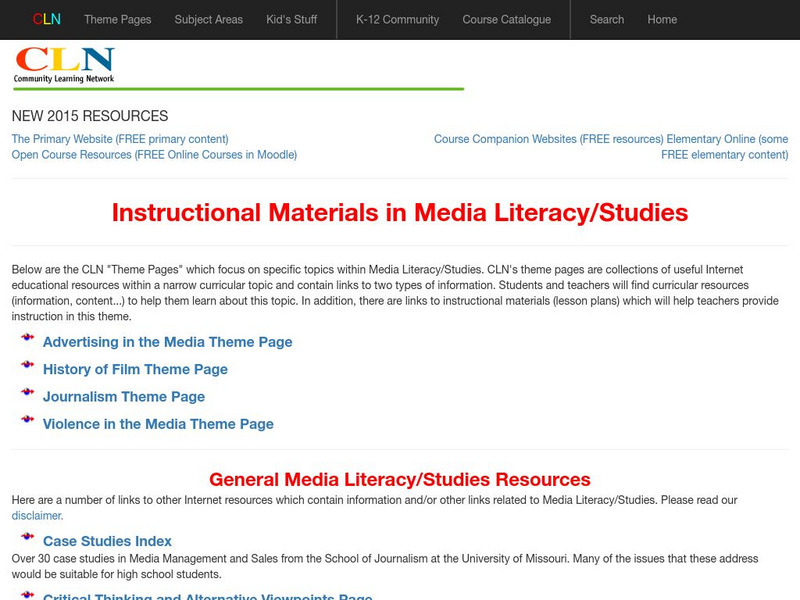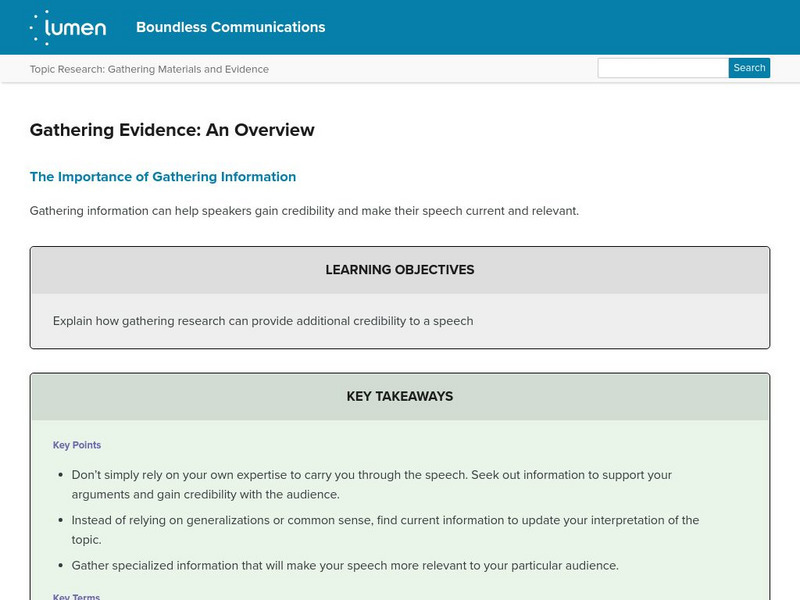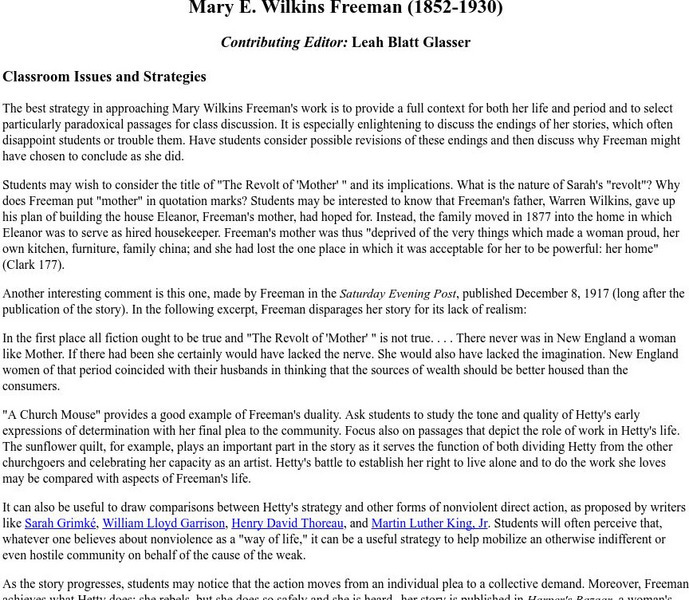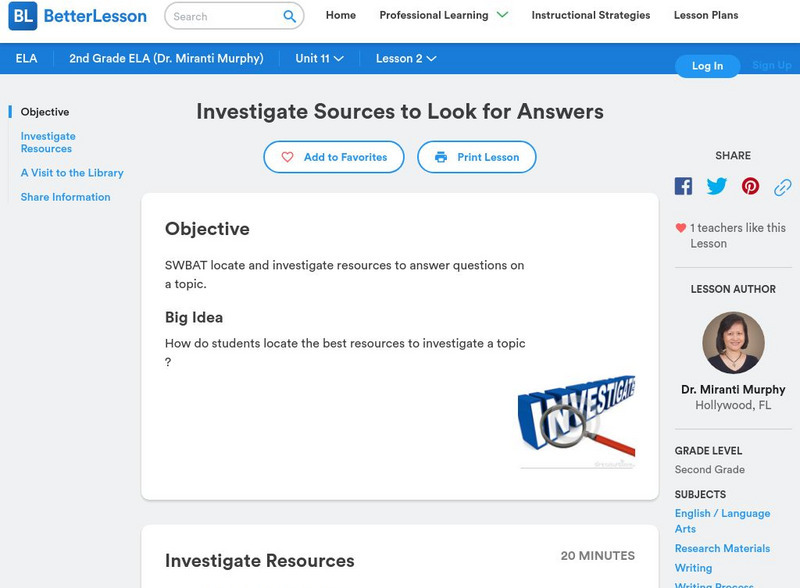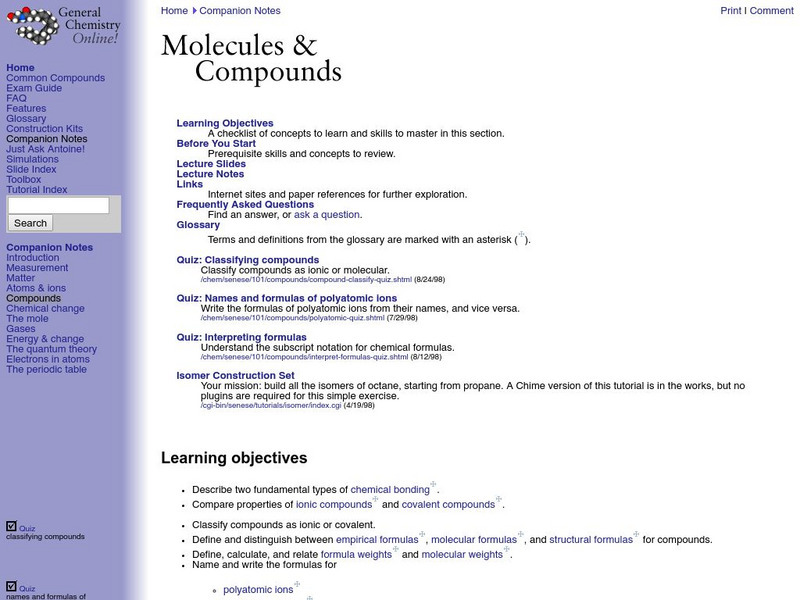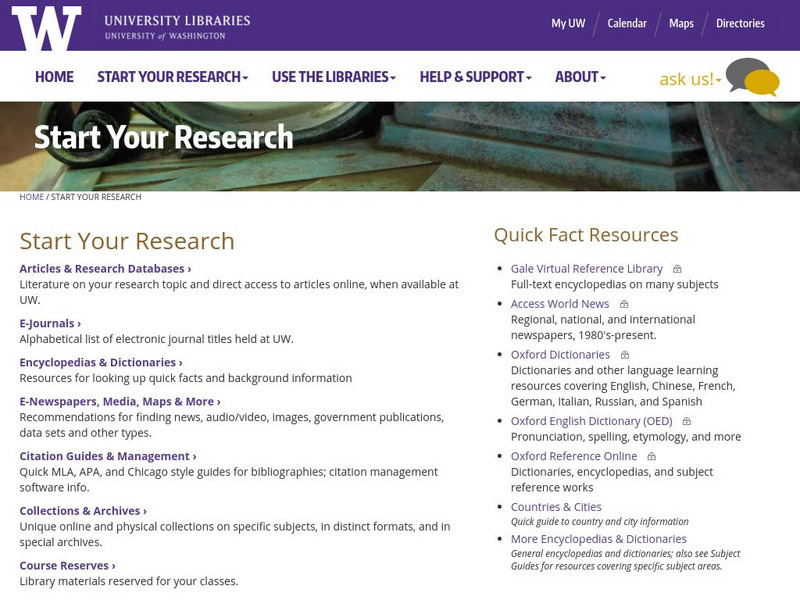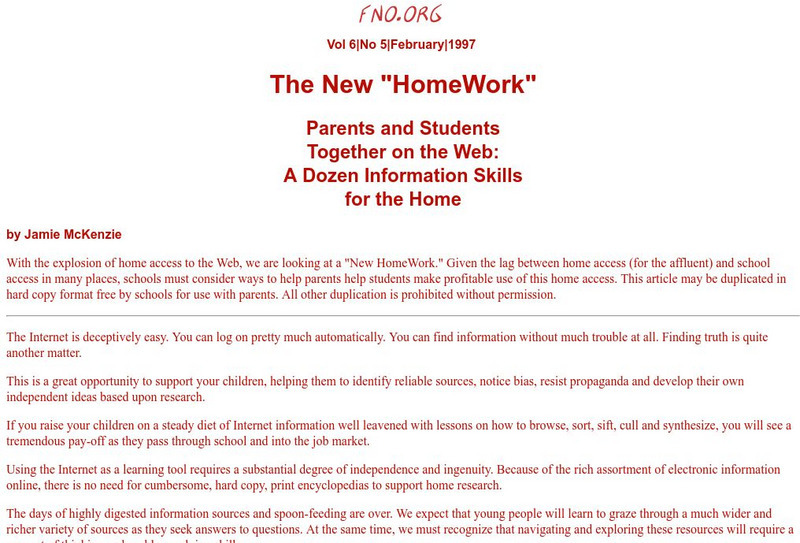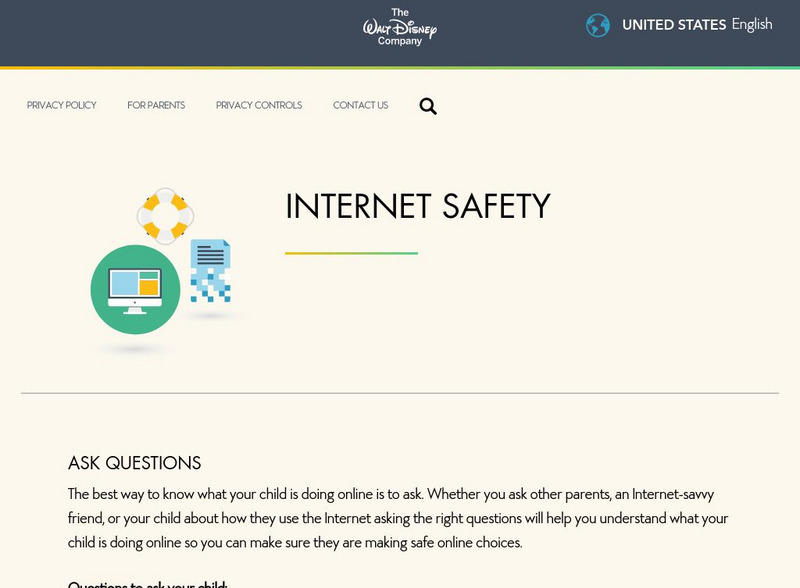Hi, what do you want to do?
College Board
Evaluating Sources: How Credible Are They?
How can learners evaluate research sources for authority, accuracy, and credibility? By completing readings, discussions, and graphic organizers, scholars learn how to properly evaluate sources to find credible information. Additionally,...
Michigan Technological University
Michigan Tech: Materials Science and Engineering: Tensile Test Experiment
Take a closer look at what is meant by the strength of a material. This easy experiment provides information about the strength or the mechanical behavior of a material, called the tensile test.
Canada Science and Technology Museum
Canada Science and Technology Museum: Background Information for Magnets
What makes a magnet? Learn all about magnets in this Q&A section. Educator resource materials are linked to this site.
Community Learning Network
Cln: Instructional Materials in Media Literacy Studies
CLN "Theme Pages," focus on specific topics within Media Literacy/Studies. CLN's theme pages are collections of useful Internet educational resources within a narrow curricular topic and contain links to two types of information....
Florida Center for Reading Research
Florida Center for Reading Research: Text Analysis: Persuade, Inform, Entertain Sort
A lesson plan in which students read short texts and sort them according to the author's purpose: to persuade, to inform, or to entertain. Materials are included. [PDF]
Read Works
Read Works: Organizing Information Into an Outline
[Free Registration/Login Required] In this activity, young scholars will take notes as they read Animal Homes by Ann O. Squire. This information will then be organized into an outline. Includes printable materials for teacher and students.
Science Buddies
Science Buddies: Wave Blockers
What do the radio, TV, radio controlled cars, and cell phones all have in common? They all use invisible waves to transmit information. Find out which materials block radio waves, and which materials allow radio waves to pass through in...
Lumen Learning
Lumen: Boundless Communications: Gathering Evidence: An Overview
This lesson plan focuses on the importance of gathering information that provides evidence for your topic that is credible, current, and relevant. It also discusses how to find and evaluate sources. SL.9-10.1a Prepared/Discuss
Aetna Intelihealth
Aetna: Inteli Health: Swallowed Foreign Object
Swallowed objects that are sharp, contain corrosive materials, and/or stuck for a long time can cause problems to the digestive tract. This overview includes information on symptoms, prevention, treatment, and more.
Georgetown University
Georgetown University: Mary E. Wilkins Freeman (1852 1930)
Notes for teachers who are reading Freeman's (1852-1930 CE) stories with their students, as well as links to other authors for comparison and a bibliography of source material are all available here.
Other
Mayan Culture: Maya Weavers
Explore the world of Mayan weaving with this colorful site! Provides photos of this ancient art, as well as links to more information on symbols, weaving techniques, materials, and more.
Better Lesson
Better Lesson: Investigate Sources to Look for Answers
Learners will practice locating and investigating resources to answer questions on a topic using the FINDS research process. FINDS is an acronym describing its five-step research process: Focus, Investigate, Note, Develop, and Score. A...
Frostburg State University
General Chemistry Online: Molecules and Compounds
A complete lesson on compounds, from introductory material in the beginning to a practice exam at the end. This lesson covers bonding, ionic compounds, molecular compounds, naming compounds, structural formulas, polyatomic ions, and much...
Other
History Miami: History Mysteries: Student Activity Booklet [Pdf]
A 20-page museum activity book on the history of South Florida. Many of the learning activities can be done on their own, as student reading materials are included in the booklet. Topics covered include the first native peoples, the days...
Utah Education Network
Uen: Learning About Polar Bears (Or Any Topic)
Explore how to use research tools to access information.
Better Lesson
Better Lesson: Sl.4.1a: Come to Discussions Prepared
Links to 36 lessons and activities that build student skills in standard SL.4.1a: Come to discussions prepared, having read or studied required material; explicitly draw on that preparation and other information known about the topic to...
Smithsonian Institution
Smithsonian Learning Lab: Building Up, Breaking Down
Smithsonian in the Classroom presents Building Up, Breaking Down. Teachers can download this comprehensive teaching package in which students investigate how buildings weather. See what happens to a building once it has been erected....
Other
University of Washington Libraries: Starting Research
If you need help knowing where to start your research, or if you're a teacher looking for a way to help students understand the research process, this resource is terrific. Interactive tutorials on a number of topics offer review quizzes...
FNO Press
The New "Home Work" Suggestions to Send Home
Information literacy can be practiced at home as well as at school. This article offers 12 suggestions for at home projects for parents and students to do together. Good for an open house handout.
Alabama Learning Exchange
Alex: Preparing to Write the Research Paper
This lesson introduces young scholars to research materials in the library and electronic materials available through the Alabama Virtual Library(AVL). The instruction emphasizes "how-to-use" multi-volume encyclopedias, multi-volume...
Varsity Tutors
Varsity Tutors: Web English Teacher: Joan Lowery Nixon
Explore the life and work of the author Joan Lowery Nixon when you visit this site. This resource features several links to more information on this author and her work.
Other
New Brunswick Museum: The Adventure Begins: A Historical Fiction
In this lesson plan, students research New Brunswick in the 1800s using primary source materials and then write a historical fiction piece about a new immigrant. Click on the Word links to access the lesson plan materials.
Other
American Chemistry Council: History of Polymers & Plastics for Teachers
This resource presents a teacher guide that offers information on the history, structure, characteristics, forms, and common uses of plastics and polymers.
Other
Disney.com: Tips for Online Safety
Internet safety material is presented. Parents can find ways to communicate with their children about the sites they visit, safety rules, and dealing with online bullies.








